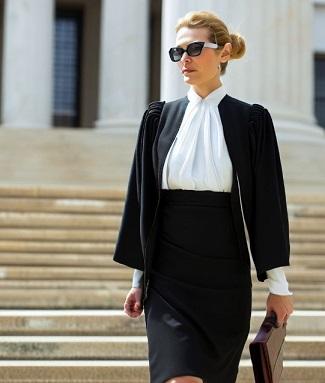Judges have a duty to act impartially and without bias. This duty is enshrined in common law principles and is essential for upholding the rule of law.
Recusal is an important ethical and legal principle in the justice system, designed to ensure that legal proceedings are conducted fairly and impartially, and that the rights of all parties are protected. It helps maintain public trust in the legal system and upholds the principles of justice and due process.
The basic principle is that a court or tribunal hearing a case must be impartial and that justice “should not only be done, but should manifestly and undoubtedly be seen to be done” R v Sussex Justices
Recusal is when a judge steps down (recuses) from hearing a case on the basis that it’s not appropriate for them to deal with it. They may have a conflict of interest or there might be actual, presumed or apparent bias against a party. There may also be a real possibility that a fair-minded observer would conclude that the judge should not try the case because they cannot be impartial.
A judge can decide to recuse themselves of their own volition, or a party can make an application for recusal. The application should be made at the beginning of any hearing or proceedings.
A Practical Law article RECUSAL OF JUDGES IN CIVIL LITIGATION is published on the 3 Paper Buildings (3PB) Chambers website.
What is a conflict of interest ?
A conflict of interest (COI) refers to a situation in which a judge is involved in multiple interests or relationships, and these interests or relationships could potentially compromise their ability to make impartial or objective decisions. In such situations, there is a risk that personal or financial considerations may unduly influence a judge’s actions or decisions.
What is bias ?
“Bias is an attitude of mind that prevents the judge from making an objective determination of the issues that they have to resolve” Re Medicaments and Related Classes of Goods (No 2) [2001] 1 WLR 700, Para 37.
The University of Oxford Faculty of Law published Determining Bias: A survey of the law in the United Kingdom in January 2020
Following the decision of the Court of Appeal in In Re Medicaments and Related Classes of Goods (No 2) [2001] 1 WLR 700, the accepted test is that laid down in Porter v Magill [2001] UKHL 67, [2002] 2 AC 357, para 103: “whether the fair-minded and informed observer, having considered the facts, would conclude that there was a real possibility that the tribunal was biased”……. The characteristics of the fair-minded and informed observer are now well understood: he must adopt a balanced approach and will be taken to be a reasonable member of the public, neither unduly complacent or naïve nor unduly cynical or suspicious.
R v. Abdroikof (Appellant) and another (On Appeal from the Court of Appeal (Criminal Division)
Check out our articles on R v Sussex Justices, Rule of Law, Litigants in Person, McKenzie Friends, HHJ Farquhar, HHJ Bedford and the highly dubious Sussex Family Justice Board.
We have a number of links to Free Legal Resources and Legal Organisations on our Free Legal Advice , Legal Aid and Pro Bono pages.
Read the reviews of Gavin Howe Barrister
“He is awful, underhanded and should not be practising law!”
Latest Articles
- What is a Paralegal ?A paralegal is a legal professional who performs tasks that require knowledge of legal concepts but does not hold the… Read more: What is a Paralegal ?
- What is a Judgment ?A judgment, also known as a judicial decision or court ruling, is the final decision made by a court of… Read more: What is a Judgment ?
- What is an Adverse Inference ?Adverse inference is a legal principle that plays a significant role in various areas of law, including criminal, civil, and family law. It arises… Read more: What is an Adverse Inference ?
- BarristersA barrister is anyone who has been Called to the Bar in England and Wales. For a barrister to offer… Read more: Barristers




